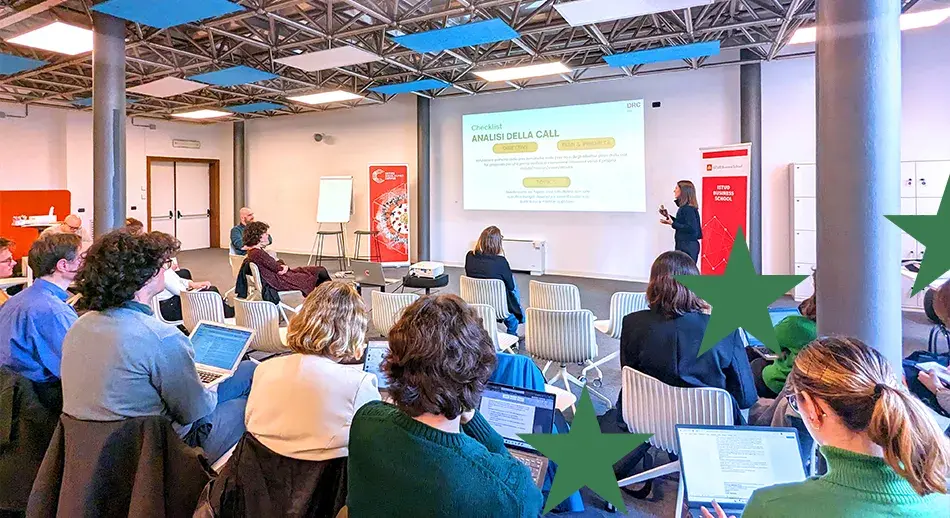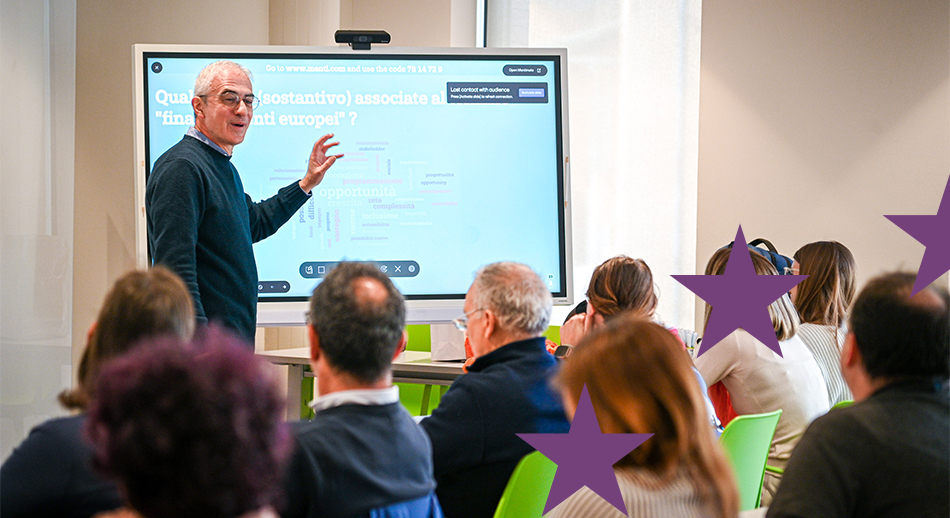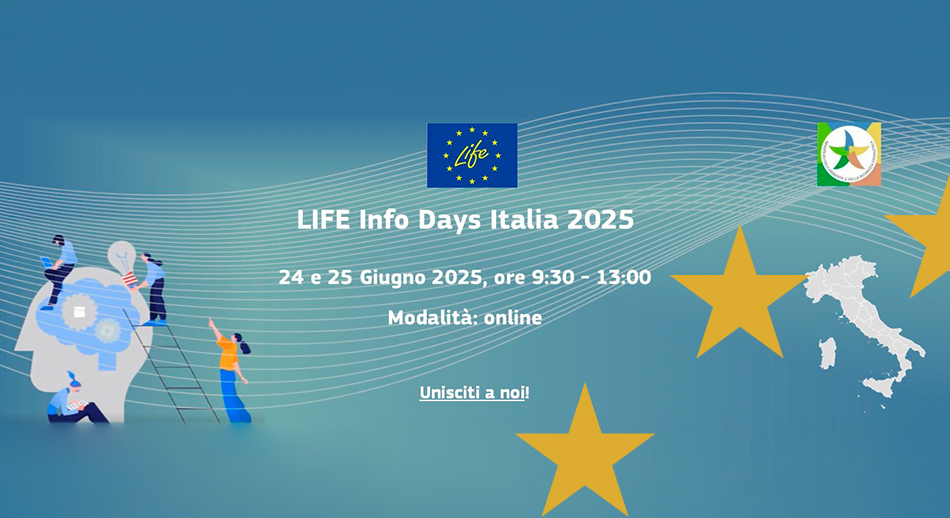Social economy and European planning: the experience, tools and expert community of the Turin Social Impact European Projects Hub
Social economy: two or three things we know about her
First, what is the social economy? There is no single definition, although many bodies, including the European Union, have attempted to define it through a set of common principles. With the Guide, we have talked about the social economy from different perspectives, and in a previous in-depth study we tried to give a definition, as well as pointing out some available guides and tools on social finance and social innovation processes.
Let’s return to this topic, starting with the wording proposed by the European Union: “the social economy encompasses a variety of enterprises, organizations and different legal entities” that “share the goal of systematically putting people first, making a positive impact on local communities and pursuing a social cause.”
To generate positive impact, social economy models:
- reinvest most of the profits in the organization and/or the social cause being pursued;
- use participatory/democratic models of governance;
- Are dropped into the local dimension;
- They promote solidarity, participation and cooperation.
The International Labor Organization’s definition of the social economy also reminds us that entities applying social economy models “aspire to long-term viability and sustainability, as well as to transition from the informal to the formal economy, and operate in all sectors of the economy.”
Wanting to rephrase the concept of social economy in our own words, we can say that it is distinguished from other models by three main features:
- the pursuit of values such as caring for people and the planet, social and local development, equality and equity, interdependence, self-governance, transparency and accountability;
- work and economic activity as a means of pursuing these values;
- the variety of actors operating there, which may include cooperatives, associations, foundations, social enterprises and mutual-help groups.
On the global policy level, the social economy is increasingly recognized as a key tool for achieving the Sustainable Development Goals, as evidenced by the UN resolution adopted in 2023.
How does this translate to Europe, and more specifically to the area of European projects?
The social economy in Europe
The European Union recognizes the importance of the social economy as a driver of development, so much so that it was included among the 14 industrial ecosystems identified in the latest update of the EU Industrial Strategy. A big step forward was the publication in 2021 of the EU Social Economy Action Plan (we discussed it here), which identifies a series of actions (legislation, policies, promotion and support tools, access to finance) to strengthen the social economy’s contribution to economic competitiveness, the “social pillar,” and the EU’s green and digital transition.
As part of this plan, an analysis of the socioeconomic performance of the social economy in the European Union was published in 2024. The study confirms the growing weight of the social economy, a sector with more than 4.3 million organizations in the EU , employing more than 11.5 million peopleand with a turnover of more than 912 billion euros. Out of the 27 member states, Italy ranks fourth in terms of the number of social economy organizations, and third when considering the number of social enterprises.
The 2021 Action Plan also includes an EU commitment to supporting capacity building of social economy actors and improving access to finance.
European funding for the social economy
There are a number of European programs useful for financing the social economy in its various fields of activity-different programs united by their emphasis on the social dimension and sustainability. We propose below an updated list from our list published in 2021, excluding funding mechanisms, such as InvestEU, and incubation programs. Opportunities in these areas are published periodically on our calls portal.
- The European Social Fund (ESF+) is the EU’s main instrument in the area of inclusion, social protection and social innovation. The
EaSI component of the ESF+, dedicated to employment and social innovation, is managed directly by the European Commission. It has a budget for study and research activities and a budget for calls and activities on the transfer and expansion of innovative solutions in these areas(Social Innovation + Initiative). - The program CERV, whose goal is the promotion of the rights and values enshrined in the EU treaties and the Charter of Fundamental Rights, can be very interesting for organizations involved in the social economy, both because of the topics covered and the possibility of participation by for-profit and nonprofit entities. We highlight, for example, the EQUAL call to promote equality and the fight against racism, xenophobia and discrimination, Daphne to prevent and combat gender discrimination, and CHILD to protect and involve children. For the new calls, the publication of the work program for 2026 is awaited, with the schedule of new deadlines announced on the “news” page of the program’s website in Italy.
- Erasmus+, a now iconic program in the field of training, volunteering and youth that, due to its versatility and the possibility for both for-profit and nonprofit entities to participate, can be useful for the development of social economy projects in these areas. In addition to short-term mobility projects (Key Action 1), Erasmus+ funds cooperation between organizations and institutions (Key Action 2), an area that can allow for the development and testing of new learning solutions and methods, for example. Action 3, on the other hand, concerns policy cooperation at the European Union level. The work program with the new deadlines is generally published at the end of the year and announced on the Erasmus+ page of the European Commission and national agencies (here, and here for programs on youth).
- The programs of European Territorial Cooperation., whose main strategic objectives (policy objectives) include that of a more social and inclusive Europe (O.P. #4), broken down into specific objectives at the regional level and into sectors of intervention. On the
Guide we provide an exhaustive list and fact sheet for each program with reference websites and link to the calls page. In Italy we point out, for example, the cross-border cooperation programs Alcotra (Italy-France), NEXT MED (15 Mediterranean countries, including Italy), Italy-Switzerland, Italy-Croatia, Italy-Slovenia and Greece-Italy, among those with the largest allocation in this area. - Horizon Europe is Europe’s largest research and innovation program. Cluster calls contained within the second pillar of the program (Global Challenges and European Industrial Competitiveness) may be of particular interest, particularly in the areas of “health,” “culture, creativity and inclusive society,” “climate, energy and mobility,” and “food, bioeconomy, natural resources, agriculture and environment.” A first draft of the Work Program was published in July this year and is available
online. The document, although not yet final, provides an initial list of calls scheduled for 2026 to begin to guide you. - The calls funded by the FAMI (Fund for Asylum, Migration and Integration), which may be of particular interest to social economy initiatives involving aspects of migration and inclusion.
- The Single Market Program, which also includes COSME, the EU’s business competitiveness program. The program devotes a portion of resources to improving the competitiveness of SMEs by facilitating access to markets, fostering the development of entrepreneurial capacity, and supporting the ability of enterprises to meet social challenges. More specific information on the program’s objectives and calls under the social economy can be found on this page.
- We also highlight the program Creative Europe, which promotes projects in the cultural and creative sector that can respond to social challenges and objectives and be of interest to social economy actors as well. The new work program for 2026, with the list of planned calls and an initial indicative timetable, was published in late September and is available here.
After this excursus, let’s see together how, concretely, one can work in European planning for the social economy, through the experience of Torino Social Impact.
Turin Social Impact: the social economy in the local organisations, with a look at Europe
Torino Social Impact is a pilot experience in Italy in the field of social economy, combining strong territorial roots with a European and international perspective.
The origin of Torino Social Impact is rooted in the Turin Chamber of Commerce, which had already created the Civil Economy Observatory in 2005, a pioneering initiative in Italy. Ten years later, the creation of the Comitato per l’Imprenditorialità Sociale (Social Entrepreneurship Committee ) – a body that provides guidance and analysis on the dynamics of the Third Sector – laid the groundwork for the birth of Torino Social Impact, which later materialized as an open and collaborative platform.
Today Torino Social Impact is an ecosystem of more than 400 partners including businesses, public bodies, financial institutions, universities, foundations and Third Sector organizations. Its mission is to make Turin one of Europe’s most advanced local organisations for social enterprise and impact investment, acting as a catalyst for ideas, experiences and resources to promote sustainable and common good-oriented business models.
The network’s activities revolve around a few main areas: promoting the digitization of the third sector and experimenting with new technologies for social impact; social procurement and impact finance, where we find projects such as the Social Impact Exchange or the experimentation of an outcome fund associated with the Neet issue; measuring social impact; and promoting Communities of Practice.
Over the years Torino Social Impact has become a reference point at the European and international level. It has been actively involved in the process of defining the EU’s Action Plan for the Social Economy, is officially recognized as a European cluster of the proximity and solidarity economy, and continuously participates in the European Social Economy Conference, and in numerous international events and projects. It has hosted in Turin the most important international forums dedicated to social economy and impact finance and maintains a wide relational network with other local organisations and organizations, making it available to the whole ecosystem.
He is a member of important networks such as REVES (Réseau Européen des Villes et Régions pour l’Économie Sociale et Solidaire) and DIESIS (Developing European Initiatives for a Social and Solidarity Economy), Impact Europe, Social Impact Agenda – GSG Italy NAB and Social Value.
It was from this international perspective that the idea of creating the European Social Economy Project Hub was born, a concrete tool tostrengthen the capacity of partner organizations to access European Union funding.
The European Social Economy Projects Hub and the “roster” of European designers.
The Turin Social Impact European Projects Hub for the Social Economy aims to be a reference point on European planning for those doing social economy in Turin. Launched in 2023, the Hub is run in partnership with Weco social enterprise, and is supported by the Turin Chamber of Commerce and the Compagnia di San Paolo Foundation.
The idea of the Hub was born in a European and international policy context of promoting the social economy: the aforementioned EU Social Economy Action Plan, the more recent UN General Assembly Resolution “Promoting the Social and Solidarity Economy for Sustainable Development,” and the EU Council Recommendation on the Development of the Framework Conditions for the Development of the Social Economy, which emphasizes the importance of the local and territorial dimension of the social economy in fostering access to funds and achieving social impact.
At the national and local level, the scenario is also consistent: the Ministry of Economy and Finance recently kicked off the public consultation on the new National Action Plan for the Social Economy, while at the local level the Metropolitan Plan for the Social Economy Turin 2030, one of the first implemented by an Italian city, was born.
The Hub was created to strengthen skills on European planning and to encourage the participation of organizations in the Turin ecosystem in European Union programs and calls for proposals. In this way, it helps build a real laboratory of best practices for European design on the social economy.
The Hub’s activities are based on a capacity building and peer learning approach: through participatory workshops, expert partners share knowledge and practical tools related to specific European programs and calls. Meetings are organized to coincide with the opening of the calls of greatest interest, to stimulate co-design of concrete ideas and networking. The workshops have already covered several programs, including Erasmus+, Horizon Europe, CERV, AMIF and Alcotra. Some of the ideas hatched during these moments of discussion are then taken through a mentorship process, guided by experts with the goal of not only presenting a competitive project, but also making organizations more autonomous and competent in future applications.
To date, the Hub has supported the preparation of 43 projects,12 of which have already been approved, involving more than 100 network organizations and more than 30 professionals and experts.
The latest initiative promoted by the Hub is the creation of the community, or “roster,” of EU project designers, a tool designed to facilitate Torino Social Impact partners in the application phase for European calls for proposals following the workshops.
The roster, published on the Torino Social Impact website, is the result of a call for interest launched in July 2025 and now gathers 63 experts active as freelancers or within specialized organizations and companies. It is a dynamic roster, which will be progressively expanded and updated through feedback and monitoring tools. The experts on the roster are presented on this page.
TSI partners will be able to access the roster by selecting the most suitable professional figure for their accompanying path. The latter is not limited to project writing or fundraising, but aims to strengthen organizations’ design capabilities, creating value in the long run.
Although designed primarily for IST network partners, theroster is open and searchable by anyone who would like qualified support in submitting European projects dedicated to the social economy.
The Torino Social Impact experience: why European social economy projects.
Irene Maddio-Rocco, head of projects and engagement at Torino Social Impact, tells us about this initiative and the reasons why Torino Social Impact has become increasingly interested in European planning.
Irene, why get involved in social economy and why do it (also) with European projects?
The social economy is at the heart of our work: we believe in a development model that holds together economic competitiveness and collective well-being, that measures progress not only in terms of growth, but also in terms of quality of life and social cohesion.
The local level is our base, but the European dimension is now indispensable. Europe is not only a source of funding, but a laboratory of ideas, practices and relationships. European projects allow organizations in our ecosystem to access resources, but also to compare themselves with realities in other countries, learning from different experiences.
Organizations often look primarily at their local organisations; European projects help them to look up, to think within a broader context of common challenges and shared goals. An important aspect for us is the collective learning dimension: through the Hub, we share not only successes, but also mistakes, because every experience-even an unapproved project-becomes useful knowledge for everyone. This is how we build a community that grows together.
What have European projects brought and what do they bring to your business?
European projects have a multiplier effect on our ecosystem: they strengthen networks, develop skills, stimulate innovation. They help us position ourselves in Europe as an active network, capable of contributing to the major themes of the social economy. Thanks to these experiences, we can bring new training skills to the local organisations that want to try their hand at European planning.
Torino Social Impact directly participates in several projects, consistent with its strategic plan. I am thinking, for example, of PROSECO, dedicated to strengthening the role of social procurement in public policy and business practices, or DO IMPACT, which supports small and medium-sized enterprises and social economy organizations in adopting digital solutions and data-driven models.
Our presence in many European networks and partnerships also allows us to facilitate connections between the Turin network partners and other European entities, opening up new opportunities for collaboration and co-design.
What are your plans for the future?
Our goal is to continue to strengthen the culture of European design in the Turin ecosystem and increase the concrete capacity of organizations to do so on their own.
The European context is constantly evolving, which reminds us how crucial it is to keep the debate alive, invest in expertise and consolidate strategic alliances to give greater weight to our positions. Local ecosystems are now a decisive engine for sustaining the role of the social economy and promoting truly sustainable development, especially at the social level.
For the Hub, we want to work on two fronts: on the one hand, to ensure its sustainability over time, making it increasingly autonomous in terms of resources and management; on the other, to continue to cultivate an open, collaborative and innovative ecosystem capable of generating shared value. All this in accordance with our broader ambition: to make Turin a European design laboratory for the social economy, a model from which other local organisations can draw inspiration.




